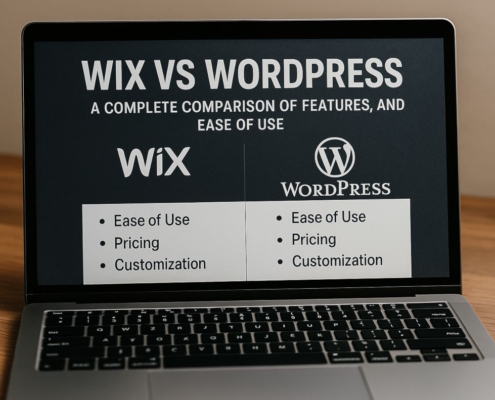The top credit card processing companies accept a range of payment methods and frequently provide POS (point-of-sale) systems. They also offer competitive and transparent pricing.
A comprehensive list of the best credit card processing providers that we particularly enjoy can be seen below.
1. Square: Our selection for one-stop payment solutions
Reasons for liking it
Square offers a number of user-friendly point-of-sale (POS) systems and simple credit card processing solutions, all in one easy package. Although its flat-rate pricing methodology is easy to comprehend and lets you plan for a set monthly expense, your actual cost can be more than what interchange-plus costing would bring you.
Pros
- The setup is fast.
- Combines hardware, point-of-sale software, payment processing, and a payment gateway into a single solution.
- For a 1.5% fee of the whole amount, funds are made instantaneously available.
- Customer service hours are six in the morning to six in the evening on weekdays. Free subscriptions are offered during Pacific Time; premium subscriptions offer round-the-clock customer service.
- Uses a third-party application to integrate with the accounting programs Xero and QuickBooks Online.
Cons
- Doesn’t offer services to companies in particular sectors.
- Not compatible with Windows devices.
2. Helcim: Our selection for discounts for large volumes
Reasons for liking it
In contrast to flat-rate processing companies, which impose a uniform transaction cost on all credit card types, Helcim employs an interchange-plus price model. In other words, when a consumer uses a card that has cheap interchange rates, your company saves money. Additionally, Helcim provides volume savings for organizations that process over $50,000 per month, which is advantageous for high-volume enterprises. Additionally, the business supplies its own smart interface and smart card reader if you require hardware for in-person payment processing.
Pros
- Adopting an interchange-plus billing system can save money for enterprises.
- Approvals typically take a day, so setup is quick.
- Provides automatic volume-based discounts.
- Connects to Xero and QuickBooks Online immediately.
- No lengthy contracts or termination costs.
Cons
- There is no same-day deposit choice; deposits can only be made within two business days.
- Doesn’t provide services to companies in several high-risk sectors.
3. National Processing: Our selection for processing at a flat, low rate
Reasons for liking it
National Processing offers particularly low payment processing rates in contrast with its competing flat-rate competitors, at 2.5% + 10 cents for every in-person transaction. The Advanced package for point-of-sale systems lowers the prices to 2.41% + 10 cents. Also eligible for a complimentary terminal are new merchants.
Pros
- A flat-rate provider with minimal in-person processing expenses.
- No long-term agreements or termination fees.
- Collaborates with riskier vendors.
- A free terminal could be available to new merchants.
- Round-the-clock phone assistance.
Cons
- If your monthly processing volume is lower than $10,000, fees can be higher.
- Online and in-person transaction processing are covered by different basic plans.
- The mobile card reader costs more than some of its rivals.
4. Stripe: Our selection for online, global transactions
Reasons for liking it
With Stripe, you can accept payments from clients in 46 countries in over 135 currencies. Stripe was designed specifically for online businesses rather than physical ones. It can be used to generate payment links, send invoices, and integrate a checkout portal into your current website. Competitors typically use a flat-rate price structure for online transactions.
Pros
- The setup is fast.
- Email, chat, and phone support are available around the clock.
- QuickBooks Online is synchronized.
- The option of instant payout is offered for a 1% fee, with a minimum of 50 cents.
Cons
- Businesses in some industries cannot access certain services.
- To properly utilize all of the functions, considerable technical knowledge is necessary.
5. Chase payment Solutions: Our selection for an integrated banking partner
Reasons for liking it
The convenience of banking and payment processing through the same, reliable company is appealing. For instance, you will only need to contact a single company rather than two if you are experiencing issues with deposits. Chase Payment Solutions offers affordable online and in-person processing rates in addition to its simplicity.
Pros
- Processor & acquiring bank combined into one.
- Plans are offered for free each month.
- Deposits are convenient when your bank serves as the processor.
Cons
- Pricing information for some hardware is not easily available.
- Not a single e-commerce integration.
- There is a $15 monthly service charge for certain merchants using Chase’s Business Complete checking account.
6. Payment Depot: Our selection for customized interchange-plus prices
Reasons for liking it
The payment processing platform Stax, which operates as a membership model, owns Payment Depot. However, unlike Stax, it has an interchange-plus pricing mechanism and doesn’t require a subscription fee every month. Businesses need to contact Payment Depot directly for details because the margin they charge in addition to interchange differs.
Pros
- When customers utilize cards that have reduced interchange rates, businesses save money.
- No fees for cancellations.
- Compatible with Clover and a number of other POS hardware suppliers.
- Round-the-clock phone assistance
Cons
- Markups differ depending on the business.
- Hardware cost is not disclosed on the website.
7. Shopify: Our selection for online retailers
Reasons for liking it
Because it connects with Shopify’s e-commerce system, Shopify Payments is a great option if you own a virtual retail company and need to build a website for it. There are a few free template selections along with over 200 website themes to choose from. Additionally, as you improve your POS software options, the rates at which payments are processed decrease.
Pros
- Takes several different forms of payment.
- You can customize the checkout page.
- Simple to assemble and operate.
- Clear and consistent fees
Cons
- In order to utilize Shopify Payments, you must have a monthly e-commerce plan.
- Charges an amount for using a third-party billing system.
8. Finix: Our selection for subscription-based pricing
Reasons for liking it
Finix is a subscription-only processor of payments that bills interchange and a nominal extra cost. It is most economical for companies that handle at least $5,000 in monthly transactions and provides volume savings to companies that handle over $1 million of card transactions yearly. Finix offers a variety of online transaction choices, invoicing capabilities, and card readers & handheld terminals enabling in-person transactions.
Pros
- No lengthy contracts.
- High-volume enterprises can save money by using a subscription model.
- Fee breakdowns that are transparent.
- Round-the-clock emergency email and telephone assistance
Cons
- Restricted choices for POS hardware.
- Does not directly integrate accounting software.
9. PaymentCloud: Our selection for businesses that are at a high risk
Reasons for liking it
Small companies operating in high-risk sectors that might be having trouble finding conventional payment service providers that are open to collaborating with them are served by PaymentCloud. Pawn shops, debt collection & consolidation, CBD, and nutraceuticals are a few of these industries. PaymentCloud offers these kinds of businesses payment processing services in addition to a specialized merchant account.
Pros
- Offers merchant accounts to companies that pose a high risk, like those who offer age-restricted goods or have significant rates of chargebacks or credit card fraud.
- Customer service is offered around the clock.
- Connects to QuickBooks Online.
Cons
- Pricing is unclear.
- Generally speaking, approval takes 48 hours, although the speed at which you submit the necessary paperwork may affect how long it takes.
10. PayPal: Our selection for flexibility in payments
Reasons for liking it
PayPal is a pioneer in creating and facilitating payments via cutting-edge methods, such as through payment links, QR codes, subsidiary Venmo, and buy-now-pay-later financing. The majority of websites & shopping carts collaborate with PayPal because it is such a popular platform.
Pros
- A payment processing platform that is widely utilized
- Simple to use, it integrates with shopping carts and website servers
- Transparent fixed costs in twenty-five different currencies.
Cons
- The range of services offered by PayPal can be challenging to quickly understand
- Processing payments might be costly for minimal purchases.
- Not the best for high-volume or high-risk enterprises.
Credit card processing: What is it?
Processing credit cards include authorizing and sending money between the issuing bank of a client and the merchant bank of a company in order to finalize a transaction. A customer’s payment card details are authorized in a matter of seconds, but the procedure continues after they cross the checkout counter. Following the card reader’s notification that the customer’s credit card details have been accepted, funds are transferred between banks through the settlement process, which typically takes at least a single working day to finish.
For physical stores to use credit card payments, they require both technology and software, which several credit card processing businesses provide. For instance, Square offers POS and card reader solutions in addition to free monthly software options. Instead of an actual card reader, internet businesses require a payment gateway that permits consumers to safely enter and authorize their credit card details online. Usually, they are also included in packages that include payment processing capabilities.
Tips for selecting a credit card processing service
Finding credit card processing firms that can accept payments through all of your sales channels—online, in-person, or both—should be your first step. Don’t choose a company that doesn’t sell its own equipment (POS devices, card readers, etc.) if you want a payment processor & POS system all in one.
To help you select the best credit card processing firm, here are some more things to consider.
- Cost: In addition to considering monthly subscription charges and payment processing fees, search for credit card processing businesses that don’t impose additional fees for PCI compliance, setup, or termination.
- Timing of deposits: Companies that process credit cards should ideally provide same-day / next-day deposits. This will shorten the time it takes for payments from clients to appear in the account you have.
- Contracts: Although changing credit card processing firms can be difficult, you should keep the option open. Choose only those businesses that don’t require you to agree to a lengthy agreement.
- Customer service: Take into account the phone and live chat alternatives, as well as the hours and days that they are available. It could be convenient to get an option that provides round-the-clock service if your company is operating after regular business hours.
- Integrations: If the company that processes your credit card offers point-of-sale software, be sure that it works well with your bookkeeping system and any other applications you employ for other purposes, such as inventory control. Additionally, ascertain whether you require integration with online shopping carts and e-commerce software.
How much does processing a credit card cost?
Generally speaking, credit card processing charges consist of the following sorts of costs:
- The issuing banks receive the interchange fees.
- The card networks receive the assessment fees.
- The “markups” or “cuts” that are given to the payment processing business in exchange for completing the transaction are known as payment processor fees.
- Many businesses do not demand monthly subscription fees, however, they can reach $99 per month. On the other hand, credit card processing firms that impose monthly fees might provide reduced processing rates in return.
Pricing models for credit card processing
- Flat rate: The majority of our best choices fit into this group. Flat-rate credit card processors combine interchange, assessment, & payment processor charges into a single, fixed rate, which for physical transactions usually looks like 2.6% + ten cents. The sign-up process usually takes little time, and this model is simple to comprehend.
- Interchange plus: Rather than combining the various fees into one package, interchange-plus alternatives reveal the interchange fee for each transaction and add a fixed rate to it. This strategy can help large-scale businesses save money and is more open than flat-rate models.
- Subscription-based: This approach frequently employs interchange-plus pricing, but in return for reduced interchange markups, it imposes an extra monthly fee. High-volume companies whose monthly payment handling rates would be higher than the monthly membership cost without lower markups would also find this to be a wonderful alternative.































